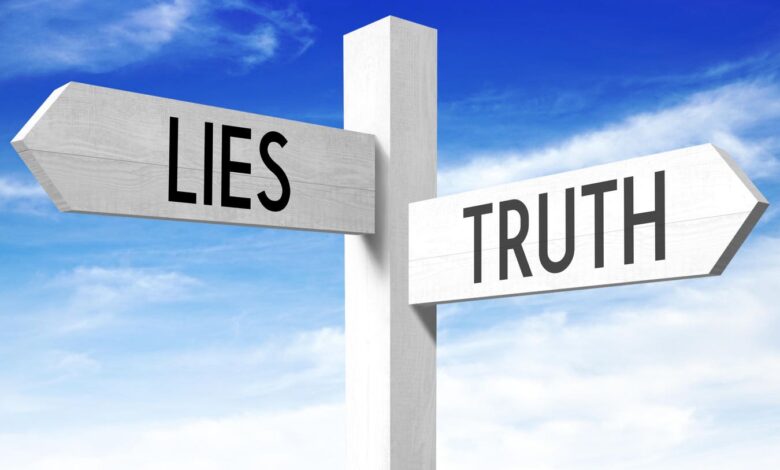Your Business Valuation Is Not What Business Buyers Care About

📝 usncan Note: Your Business Valuation Is Not What Business Buyers Care About
Disclaimer: This content has been prepared based on currently trending topics to increase your awareness.
What if the metric you’ve been obsessing over, the “value” of your business, might not matter as much as you think?
getty
What if I told you that the number you’ve been obsessing over, the “value” of your business, might not matter nearly as much as you think?
Although a business valuation is a useful benchmark, it’s only half of the equation. The other half, the part most business owners miss, is sellability. And unless you know both, you’re at risk of building a business that nobody wants to buy.
This article is about exposing that blind spot. It’s about showing you why knowing your business valuation isn’t enough, what business buyers really look for, and how you can measure (and improve) the exit potential of your business.
Because selling a business isn’t about a valuation on paper. It’s about whether someone will actually write the check and buy your business.
The Two Numbers That Decide Your Future
When business owners approach me, they usually start with one burning question: “What is my business worth?” It’s a valid question. Valuation matters. Business buyers care about profitability, revenue, assets, and risk. And with valuation tools readily available (from brokers to online calculators), it’s easier than ever to get a quick estimate.
But here’s the mistake: valuation alone doesn’t guarantee you’ll sell your business.
A valuation is like a home appraisal. It looks at the fundamentals: location, number of bedrooms, square footage, recent comparable sales, and spits out a price range. That range is useful. It tells you what your house should be worth. But will it actually sell for that price? That depends on the condition of the property, the motivation of the seller, the perception of the buyer, and the state of the market.
The same applies to your business. On paper, it might be highly profitable. But if it can’t run without you, if one client makes up 80% of your revenue, or if your systems exist only in your head, then good luck convincing a buyer to pay top dollar.
That’s where the second number comes in: the exit-readiness of your business.
Exit-readiness isn’t about value, it’s about sellability. It’s the missing piece that tells you whether your business is realistically positioned to attract a buyer at the price you want.
And together, these two numbers—valuation and sellability—are what determine your real exit outcome.
Why Valuation Alone Misleads Business Owners
Let’s talk about why so many entrepreneurs put blind faith in valuations.
First, a valuation feels concrete. It produces a number, often wrapped in professional-looking charts and graphs. That number feels like certainty in a world of entrepreneurial chaos.
Second, valuations are everywhere. Brokers advertise them for free, online platforms generate them in minutes, and countless articles preach formulas. It’s easy to assume that if you know the number, you know the truth.
But here’s the problem:
- Valuations vary depending on who provides them. A broker might inflate your valuation to win your business. An opportunistic buyer might deflate it to justify a lowball offer. Even automated tools can swing wildly depending on the data you input.
- Valuations ignore human factors. They don’t account for your emotional attachment, the buyer’s confidence, or the trust required for a deal to close.
- Valuations overlook deal dynamics. The exact same business could sell for wildly different amounts depending on market timing, buyer appetite, or even how long it’s been sitting unsold.
Bottom line: a valuation gives you a snapshot of potential worth. But it doesn’t tell you how attractive (or even possible) a big exit really is.
Enter Sellability: What Business Buyers Really Care About
Here’s what most business owners miss: Buyers aren’t just buying your profit. They’re buying the confidence that your profit will continue without you.
That’s why sellability matters.
It’s the real-world measure of whether your business is transferable, sustainable, and desirable in the eyes of a buyer.
Imagine two businesses with identical valuations on paper. Both generate $1 million in annual profit. Both are in the same industry. Both are located in the same region.
- Business A has a documented playbook, a strong management team, and diversified revenue streams. The owner can step away tomorrow, and the business keeps running smoothly.
- Business B is like a solo operation. The owner manages everything. Clients buy because of the owner’s personal reputation. If the owner leaves, the business collapses.
On paper, both businesses are “worth” the same. In reality, only Business A will sell for top dollar. Business B might not sell at all.
That’s the difference between valuation and sellability. And it’s why every business owner preparing for an exit needs to measure both.
The Real Estate Analogy That Makes It Crystal Clear
Let’s return to the house example. Two houses look identical on paper. Both are 3-bedroom, 2-bathroom homes with the same square footage. The appraisals come back at the same value.
But when buyers show up, the differences become obvious:
- House A has a well-kept garden, updated appliances, and fresh paint. The paperwork is in order. Spare cans of matching paint are in the garage. Buyers can move in tomorrow.
- House B has termite damage, an overgrown lawn, and missing permits. On paper, it’s the same house. In reality, it’s a headache.
Which one sells faster, and for closer to or above asking price? Obviously, House A.
Businesses are no different. Sellability is about the condition of your “house.” It’s about whether buyers feel confident they’re buying something ready to run, not a fixer-upper that will drain their time and money.
How To Measure Exit Readiness
There are different tools you can find online to measure exit-readiness (here’s one).
Think of an exit-readiness test like a quick health check. Just as you’d use a finger-prick test to measure blood sugar before booking a full lab analysis, an exit-readiness test gives you an accessible, immediate snapshot of your business’s sellability.
Pair it with a valuation, and you suddenly have two data points:
- What your business is worth.
- How likely it is to sell for that amount.
That combination gives you clarity and control over your future big exit.
Why Independence Matters When Valuing a Business
Not all valuations are created equal.
Brokers often use their free valuations as a foot in the door. If inflating the number makes you feel good and gets you to sign their contract they’ll inflate.
Business buyers who specialize in distressed acquisitions might do the opposite, deflating your valuation to justify a bargain offer.
That’s why independence matters. Get a valuation that isn’t tied to a sales mandate. In that case, there’s no hidden agenda. You get a fair, independent assessment of your business’s value, without the pressure to list or sell.
Pairing that independence with an independent exit-readiness test, gives you a rare combination: objective valuation plus a real-world measure of sellability.
That’s power in the hands of the small business owner.
The Biggest Blind Spot: Owner Dependence
One of the most common reasons businesses struggle to sell has nothing to do with the numbers. It has to do with you.
If your business depends on you for everything—sales, delivery, client relationships—then you don’t have a business, you have a job. And jobs aren’t sellable.
Buyers want systems, not superheroes. They want documented processes, a capable team, and proof that revenue continues without the founder in the room.
That’s why solopreneurs and freelancers often score high on profitability but low on sellability. On paper, the numbers look great. In reality, there’s nothing to buy once the founder walks away.
If you see yourself in this description, don’t panic. It’s fixable. Start by shifting delivery away from you, documenting your processes, and building a team that can operate independently. Each step increases both your exit readiness and your ultimate valuation.
How Exit Readiness Saves You Time (And Money)
Here’s something business owners rarely think about: the time your business is on the market for sale.
The longer a business sits unsold, the harder it is to sell. Buyers start asking, “What’s wrong with it?” Negotiating power shifts to the buyer.
Being exit-ready helps you avoid this trap. The higher your exit-readiness is, the better your business is positioned to sell faster and closer to its fair value. A lower exit-readiness signals that you need to address issues before listing for sale, or risk sitting on the market for months (or years).
The payoff isn’t just psychological. It’s financial. Every extra month you sit unsold, you’re either leaving money on the table or draining energy you could invest in your next chapter.
Final Thoughts: Don’t Confuse Value With Sellability
Here’s the mistake too many business owners make: they assume that because their business is valuable, it’s sellable. That assumption is dangerous. It leads to disappointment, wasted time, and deals that fall apart at the last minute.
The truth is, valuation and sellability are connected, but distinct. One tells you what your business is worth. The other tells you whether you’ll actually achieve that value in a sale.
Together, they give you clarity. Together, they give you leverage. And together, they help you avoid the painful trap of building a business that looks great on paper but fails to deliver when it matters most.
So don’t stop at valuation. Understand the full picture. And start making the changes today that will ensure your business not only has value, but real-world sellability.




